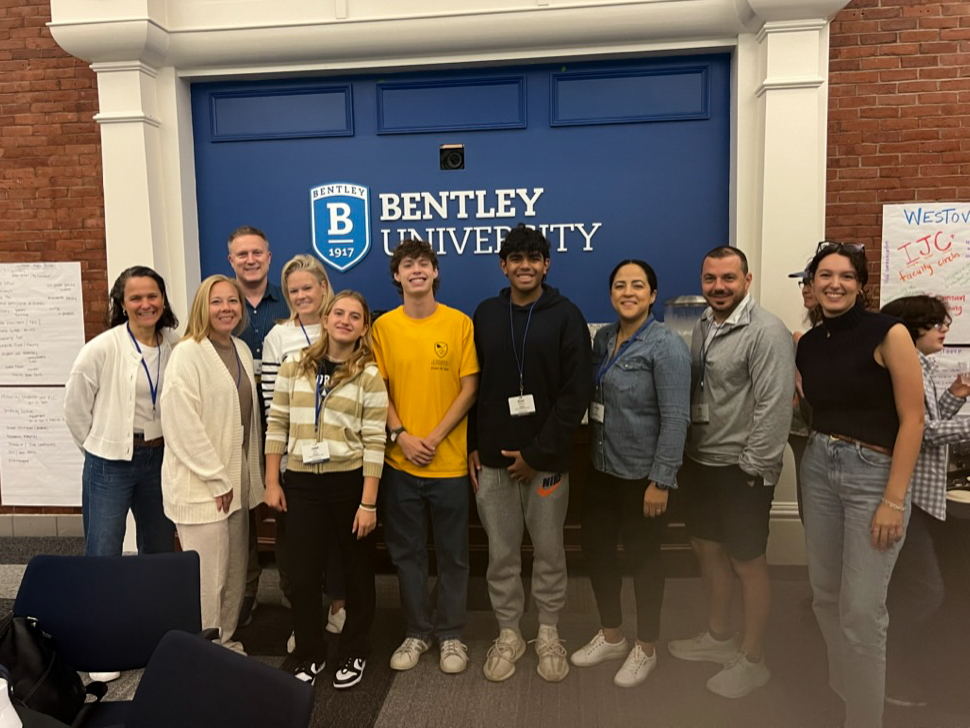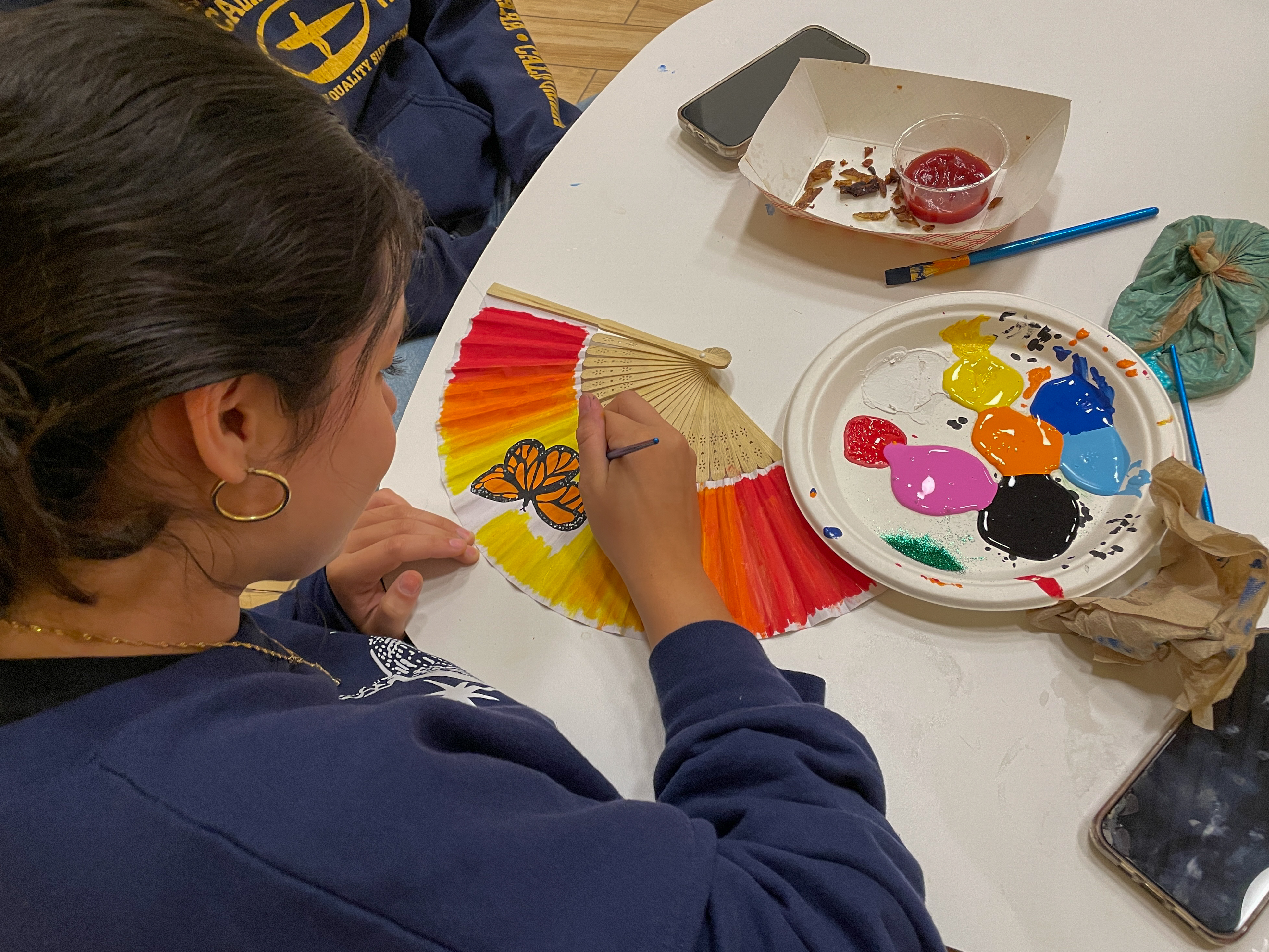Choate students and faculty are anxiously monitoring further developments in the chaos after President Trump’s P ’00 executive order restricting immigration from predominantly Muslim countries last Friday. It is hard to predict what the repercussions of President Trump’s executive order will be on Choate’s administration.
“Protecting the Nation from Foreign Terrorist Entry Into the United States” bars immigration from Iraq, Syria, Sudan, Iran, Somalia, Libya, and Yemen for 90 days, suspends all refugee admissions for 120 days, and bans all Syrian refugees indefinitely. The order has provoked widespread confusion, and government officials have offered contrasting interpretations of various clauses. There have also been numerous protests and court challenges in response to the ban.
According to Director of Admission Mr. Amin Gonzalez, it is not entirely clear how the executive order will affect the admissions process this year.
Director of Residential Life Mr. Will Morris said, “What’s hard to know for sure is what’s going to happen, and between now and the end of the 90 days, there’s not a lot we can do except for monitor the situation closely. It doesn’t directly affect very many of our students at this point. We’ve confirmed, for instance, that none of the students that are involved plan to leave the country in the next 90 days.”
Director of Equity and Inclusion Dr. Keith Hinderlie said, “The School is committed to continuing to be a school that attracts students from all over the world and creating and continuing a diverse and inclusive community.” He added, “As challenges appear, we’ll have to deal with them as they come, but there has been nothing that has caused the School to make dramatic changes.”
Choate, like many other institutions, has provided support and guidance to the students directly affected by the executive order. Mr. Morris elaborated, “It’s going to have to be handled on a school-by-school, case-by-case basis.”
Students affected by the ban have found that their visions for their future have suddenly changed. Muna Salad ’17, who is from Somaliland, said, “Even though I got into a college through Early Decision and a full scholarship, I am not sure if I will be going now. Should I apply to other schools in Europe and other countries? What am I supposed to do?”
As of right now, Salad has no plans of traveling outside the country during this school year. She is also considering not returning to Somaliland to see her family over the summer as an added precaution.
At the same time, her family is encouraging her to return back home to be safe. She said, “My mom saw the news on the Somali cable, and she told me, ‘you have to come back.’ And I was just like, ‘I cannot just leave my education.’ I’m on a really great scholarship at a really great school, and I’m going to a great college — there’s no way I’m going to drop everything and just go back. And I have to explain that to her every day and remind her, since she doesn’t understand completely the situation in the U.S., because all she’s heard is from the Somali cables.” She added, “I’m just hoping to continue my education. I’m not here to do any harm to anyone. The fact that people from my country cannot come to this country to get education because it is a Muslim country is heartbreaking.”
Salad appreciates the guidance she has received from the School. “I received so many messages of support, people telling me that they were there for me. Since there isn’t much anyone can do right now, what the school did was talk to me and let me know that no matter what happens, they will try their best to help me. And that’s all anyone can do now, to be honest. There’s nothing else that the School can do except see how things go and let me know that I have their support. And that’s all I need now. I know it’s not easy.”
She reflected, “I would like to think that things will work out for the best. I enjoyed being in the U.S. and I enjoyed being at Choate, and I would have never dreamed about coming to U.S. and going to a school like the Choate when I was younger. So I have so much appreciation for what I have gotten so far, and for that to be taken away — I’m worried. But I’m also hopeful. But I’m worried, to be honest.”
In contrast, Mustafe Dahir ’19 resolved not to wallow in the somber news. He plans to visit his family in Somaliland this summer. “Personally, I don’t like to worry about the future. I know it’s weird, but if you spend more time worrying about the future, you will forget about the present,” he said.
Dahir commented on the sheer amount of hard work students from Somaliland have to put in to study in the U.S. “There’s only one school, Abaarso School, that really sends students to good boarding schools and colleges in the U.S., and getting into that school is so hard. You have to be so smart, and you have to work so hard. And now the U.S. government is trying to stop everything you’ve worked so hard for, and it’s not right.” He added, “People can see their future — getting an opportunity to study in the U.S. — but now they can’t grasp it.”
Students who are not from the affected countries are also anxious. Abdulla Husain ’17, from Bahrain, said, “The ban does not directly affect me, but it definitely increases my anxiety about leaving the country and traveling back in. I also don’t know if Bahrain is going to be on the list in the future, and that’s one of my biggest worries. Will this eventually include all Muslim countries?”
In the wake of President Trump’s executive order and other recent actions of the administration, the School has also created a Current Events Resource Group to help answer questions, listen to concerns, and coordinate resources to support members of the community. Dr. Curtis announced this group during school meeting this Wednesday, encouraging students in an all-school email afterwards to bring to the group any concerns about how policy changes may impact peers and faculty.
Choate is not the only boarding school closely monitoring further developments of the ban. Among boarding schools nationwide, students affected by this executive order are a small but significant minority. The schools in the National Association of Boarding School (TABS) enroll around 30 students from the affected seven countries (Salad and Dahir represent two of those students.) The organization does not collect data on faculty members, but it believes that some are affected by the executive order as well.
In a letter to boarding school administrators sent this Monday, TABS Executive Director Mr. Pete Upham wrote, “TABS will continue to monitor legal developments. For now, schools may want to advise students and staff with either citizenship or residency in one of the designated countries to forgo travel outside the United States.” He continued, “In addition, schools should be in touch with admission applicants or reenrolling families from the affected countries to alert them to the uncertain visa environment for the 2017-18 academic year.”
As Mr. Upham concluded, “Effective visa screening is no doubt important to preserving homeland security. So, too, is our national tradition of welcoming talented students and educators of every culture, region, race, and religion. International students, families, and faculty members have enriched our schools, our colleges, and our country immeasurably. TABS schools are proud to stand in the vanguard of that tradition.”




